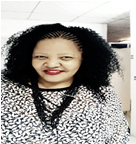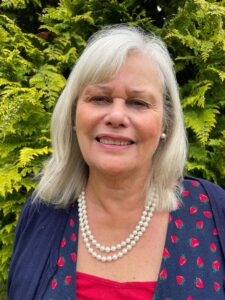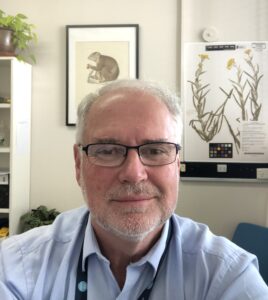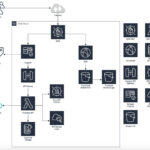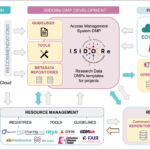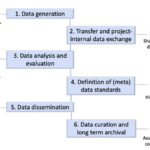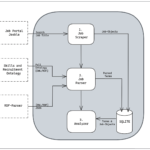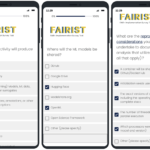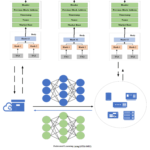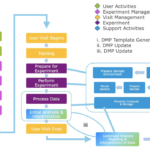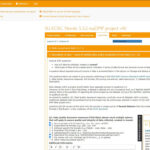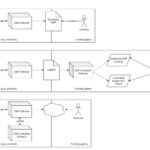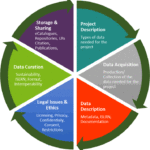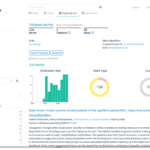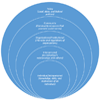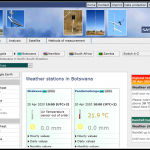 This is the sixth in the series of short statements from candidates in the coming CODATA Elections at the General Assembly to be held on 27-28 October 2023. Richard Hartshorn is a candidate for the role of CODATA Vice-President or Executive Committee Ordinary Member. He was nominated by New Zealand.
This is the sixth in the series of short statements from candidates in the coming CODATA Elections at the General Assembly to be held on 27-28 October 2023. Richard Hartshorn is a candidate for the role of CODATA Vice-President or Executive Committee Ordinary Member. He was nominated by New Zealand.
Previous and current positions in CODATA:
- Member of the Executive Committee 2018-2021 and 2022-2023
- Executive Committee Liaison to Digital Representation of Units of Measure (DRUM) Task Group 2018-2021 and 2022-2023
- Executive Committee Liaison to Task Group on Extension of InChI to Nanomaterials (2022-2023)
- Co-Chair of National Committees Forum
- Contributor to WP3 in the WorldFAIR project
Statement in support of the candidacy:
The CODATA Officers and Executive Committee have responsibility for implementing the strategic plan and its priority areas. The governance challenges come from the need to understand International Science Council (ISC) priorities while also building strong links with the CODATA national committees and scientific union leaderships with whom we work. These are all vital to achieving CODATA strategic goals. We must engage with more scientific unions, do so with intent, and focus on things data, across disciplines, if we are to meet the cross-domain challenges outlined in the CODATA Decadal Programme.
During two terms on the CODATA Executive Committee, nearly eight years (two terms) as Secretary General of the International Union of Pure and Applied Chemistry (IUPAC), and through other roles within IUPAC, I have demonstrated strategic leadership and gained significant experience in governance of international science-based organizations. Within the CODATA Executive Committee this has been particularly demonstrated through providing a scientific union perspective to committee deliberations and activities. I have served as Co-Chair of the CODATA National Committees forum, and led the establishment of the Aotearoa New Zealand Committee on Data in Research. Such background would be excellent preparation for further service on the Executive Committee, or as Vice President of CODATA.
I have been involved in the development of chemistry communication tools for many years and led the IUPAC Division of Chemical Nomenclature and Structure Representation (2010-13). I am also significantly involved in the International Chemical Identifier (InChI) Trust, both at a governance level as a member of the InChI Trust Board, and in InChI-based projects [the InChI is and will be a key tool in making chemical data Findable, Accessible, Interoperable, and Reusable (FAIR)]. My leadership activities in chemistry have involved reaching international consensus among experts from around the world. This requires skills of diplomatic negotiations in situations where a very small staff need to work with a global membership, coping with the limitations of small organizations and yet still maintaining the global impact that satisfies the wider membership. My willingness to get involved is illustrated by the way my Executive Committee liaison role with the Digital Representation of Units of Measure (DRUM) Task Group has evolved to become more like that of a full task group member.
IUPAC is committed to continued innovation in nomenclature, terminology, other intellectual infrastructure, and particularly to developing tools for the use, global exchange, and archiving of digital chemical data. I have taken a strategic role in this area, including initiation and support of work that will lead to development of digital data standards in chemistry. My recent election to the IUPAC Executive Board (having completed my terms as Secretary General) and election to a CODATA role would reinforce the already strong relationship between IUPAC and CODATA through connections at both governance and task group/project levels. This means that I would bring significant expertise in a major discipline, as well as governance experience, to the CODATA Executive Committee.


